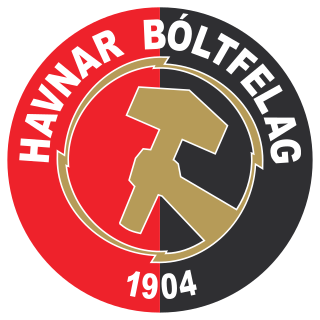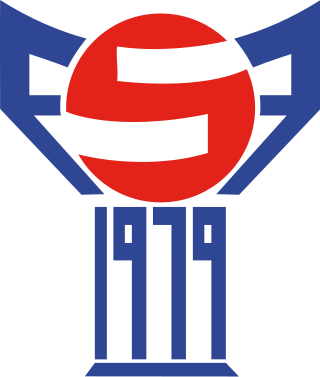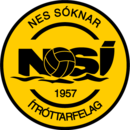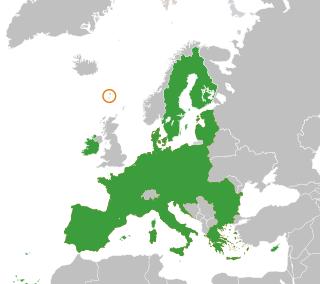
Faroe Islands competed at the 2011 World Aquatics Championships in Shanghai, China between July 16 and 31, 2011.

Faroe Islands competed at the 2011 World Aquatics Championships in Shanghai, China between July 16 and 31, 2011.
Faroe Islands qualified 1 swimmer. [1]
| Athlete | Event | Heats | Semifinals | Final | |||
|---|---|---|---|---|---|---|---|
| Time | Rank | Time | Rank | Time | Rank | ||
| Pál Joensen | Men's 800m Freestyle | 7:45.55 | 2 Q | 7:46.51 | 5 | ||
| Men's 1500m Freestyle | 14:56.66 | 6 Q | 14:46.33 | 4 | |||

Demographic features of the population of the Faroe Islands include population density, ethnicity, education level, health of the populace, economic status, religious affiliations and other aspects of the population. The vast majority of the population are ethnic Faroese, of North Germanic descent. Ethnic Faroese are, in genetic terms, among the most homogenous groups ever found.

The flag of the Faroe Islands is an offset cross, representing Christianity. It is similar in design to other Nordic flags – a tradition set by the Dannebrog of Denmark, of which the Faroe Islands are an autonomous territory.

The Inatsisartut, also known as the Parliament of Greenland in English, is the unicameral parliament of Greenland, an autonomous territory in the Danish Realm. Established in 1979, it meets in Inatsisartut, on the islet of Nuuk Center in central Nuuk.

Havnar Bóltfelag is a Faroese professional football club, and is one of the oldest in the Faroe Islands. The club was founded in 1904, and is based in the city of Tórshavn. Home matches are played in Gundadalur and they compete in the Faroe Islands Premier League. The full name of the club is "Havnar Bóltfelag Tórshavn", which means "Port Football Club". The club was founded by port workers.

The Faroe Islands national football team represents the Faroe Islands in men's international football, and is governed by the Faroe Islands Football Association (FSF). The FSF became a member of FIFA in 1988 and UEFA in 1990 and represents the fourth-smallest UEFA country by population.

The culture of the Faroe Islands has its roots in the Nordic culture. The Faroe Islands were long isolated from the main cultural phases and movements that swept across parts of Europe. This means that they have maintained a great part of their traditional culture. The language spoken is Faroese. It is one of three insular North Germanic languages descended from the Old Norse language spoken in Scandinavia in the Viking Age, the others being Icelandic and the extinct Norn, which is thought to have been mutually intelligible with Faroese.

NSÍ Runavík is a Faroese football club, playing in Runavík on the island of Eysturoy. It was founded 24 March 1957. In 2003 NSÍ participated for the first time on a European stage.

The Faroe Islands Premier League is the top level of football in the Faroe Islands. It was founded in 1942 as Meistaradeildin, and it is played in current format since 2005, when Premier League replaced 1. deild as the country's top football division. The league is organised by the Faroe Islands Football Association.

Tórsvøllur is a football stadium on the sport site of Gundadalur in Tórshavn, the capital of the Faroe Islands. The stadium holds 6,500 people, and was built in 1999 to become the country's national stadium to provide an artificial grass surface on which international football matches could be played. Previously, the Faroe Islands national team played its home matches in the town of Toftir at Svangaskarð stadium.

The Danish Realm, officially the Kingdom of Denmark, or simply Denmark, is a sovereign state consisting of a collection of constituent territories united by the Constitutional Act, which applies to the entire territory. It consists of metropolitan Denmark—the kingdom's territory in continental Europe and sometimes called "Denmark proper" —and the realm's two autonomous regions: the Faroe Islands in the North Atlantic and Greenland in North America. The relationship between the three parts of the Kingdom is known as Rigsfællesskabet.

The Faroe Islands women's national football team represents the Faroe Islands in women's association football and is controlled by the Faroe Islands Football Association (FSF), the governing body of all football in the Faroe Islands. The FSF became a member of the International Federation of Association Football (FIFA) in 1988 and Union of European Football Associations (UEFA) in 1990. By population, it remains the fourth smallest member of UEFA, which encompasses the countries of Europe. The women's team played their first FIFA-sanctioned international match in 1995 and have never advanced to the finals of the FIFA Women's World Cup or UEFA Women's Championship. They took part in the Island Games in 2001, 2003 and 2005 and won all three tournaments, as well as appearing at the 2010 edition of the Algarve Cup. In the Faroe Islands, the team is known as the Kvinnulandsliðið.

The Faroe or Faeroe Islands, or simply the Faroes, are an archipelago in the North Atlantic Ocean and an autonomous territory of the Kingdom of Denmark. The official language of the country is Faroese, which is closely related to and partially mutually intelligible with Icelandic.

The Faroe Islands, a self-governing nation within the Kingdom of Denmark, is not part of the EU, as explicitly asserted by both Rome treaties.

Important parts of Faroese cuisine are lamb and also fish owing to proximity to the sea. Traditional foods from the Faroe Islands include skerpikjøt, seafood, whale meat, blubber, garnatálg, Atlantic puffins, potatoes, and few fresh vegetables.

Hallur Hansson is a Faroese professional footballer who plays as a midfielder for Faroe Islands Premier League club KÍ.

The Faroe Islands national football team represents the Faroe Islands in association football and is controlled by the Faroe Islands Football Association (FSF), the governing body of the sport in the country. It competes as a member of the Union of European Football Associations (UEFA), which encompasses the countries of Europe. Organised football has been played in the country since the 19th century; Tvøroyrar Bóltfelag was its first club, founded in 1892. Initially, clubs played friendlies to determine the winner of an unofficial championship, with matches being contested home and away, depending on the weather and the state of the generally uneven grass pitches. The Faroe Islands Sports Association was formed in 1939, and three years later a national league was created. Cup competitions were introduced in 1955 before the FSF was founded on 13 January 1979.
Elton John's 2010 European Tour started in Portugal on 22 May and came to an end on 29 June in the Faroe Islands. During the tour Elton and the band performed in Morocco, Serbia, Bulgaria, the Czech Republic, Belarus and the Faroe Islands for the first time.

The levels of education in the Faroe Islands are primary, secondary and higher education. Most institutions are funded by the state; there are few private schools in the country. Education is compulsory for 9 years between the ages of 7 and 16.
Energy in the Faroe Islands is produced primarily from imported fossil fuels, with further contributions from hydro and wind power. Oil products are the main energy source, mainly consumed by fishing vessels and sea transport. Electricity is produced by oil, hydropower and wind farms, mainly by SEV, which is owned by all the municipalities of the Faroe Islands. The Faroe Islands are not connected by power lines with continental Europe, and thus the archipelago cannot import or export electricity.

The Faroese Footballer of the Year is an annual award chosen by a national newspaper, Sosialurin, to determine the best player in the Faroe Islands.